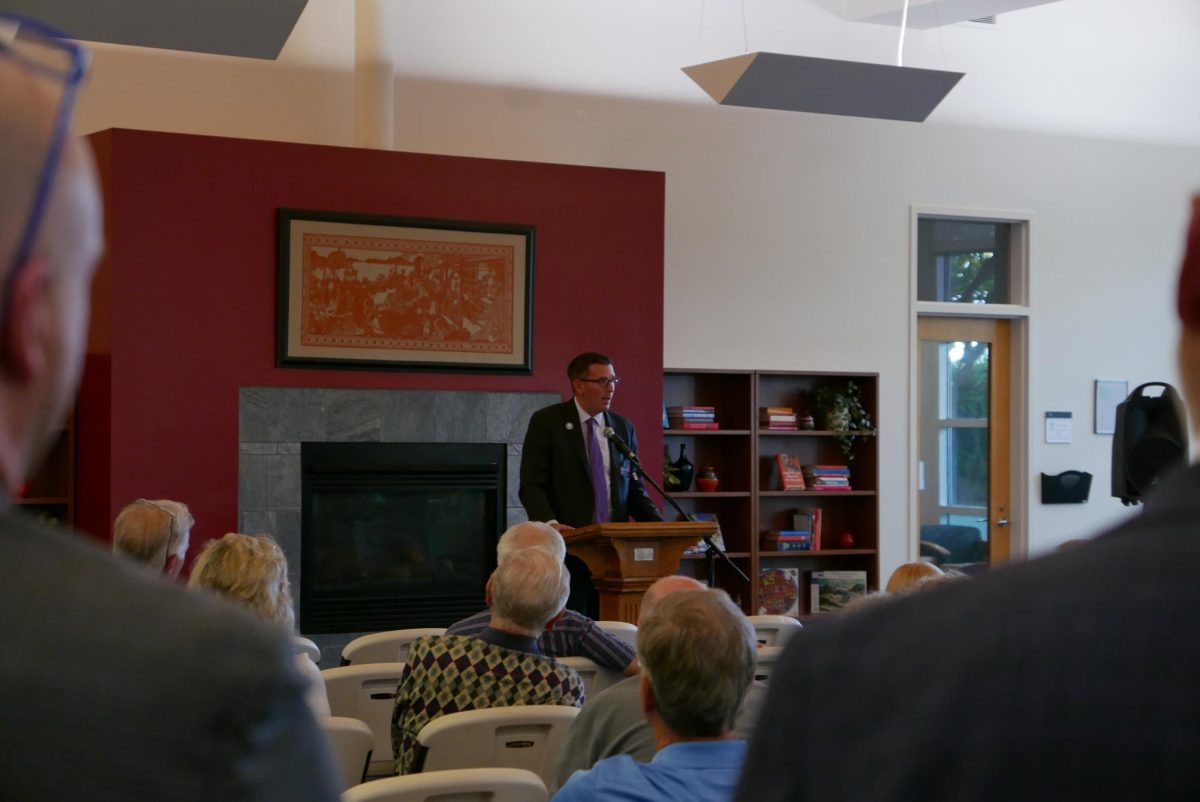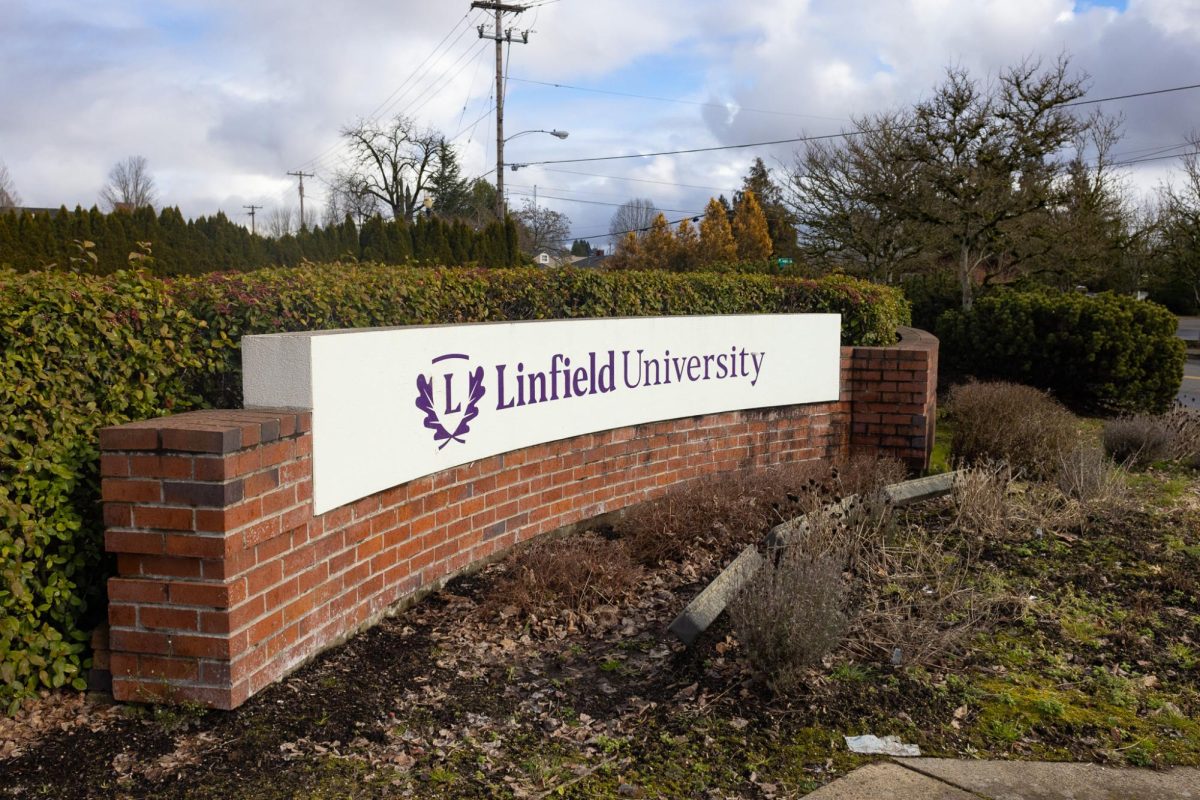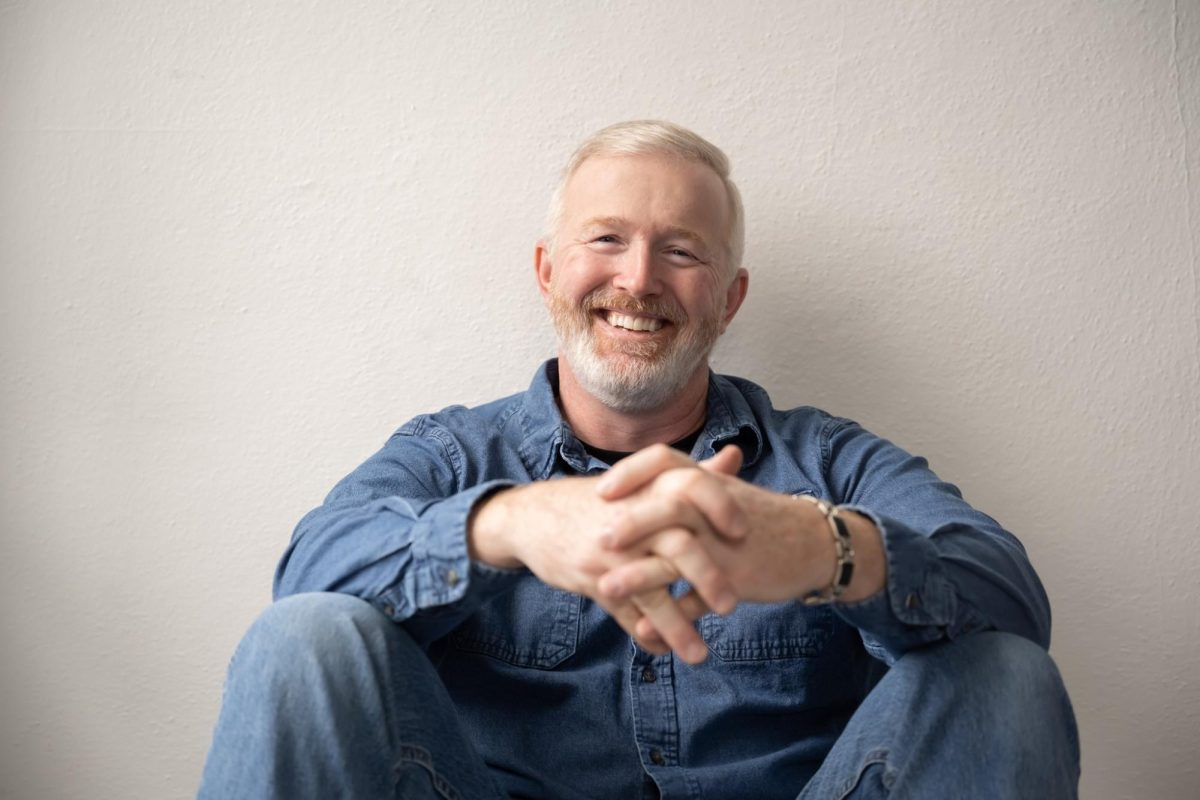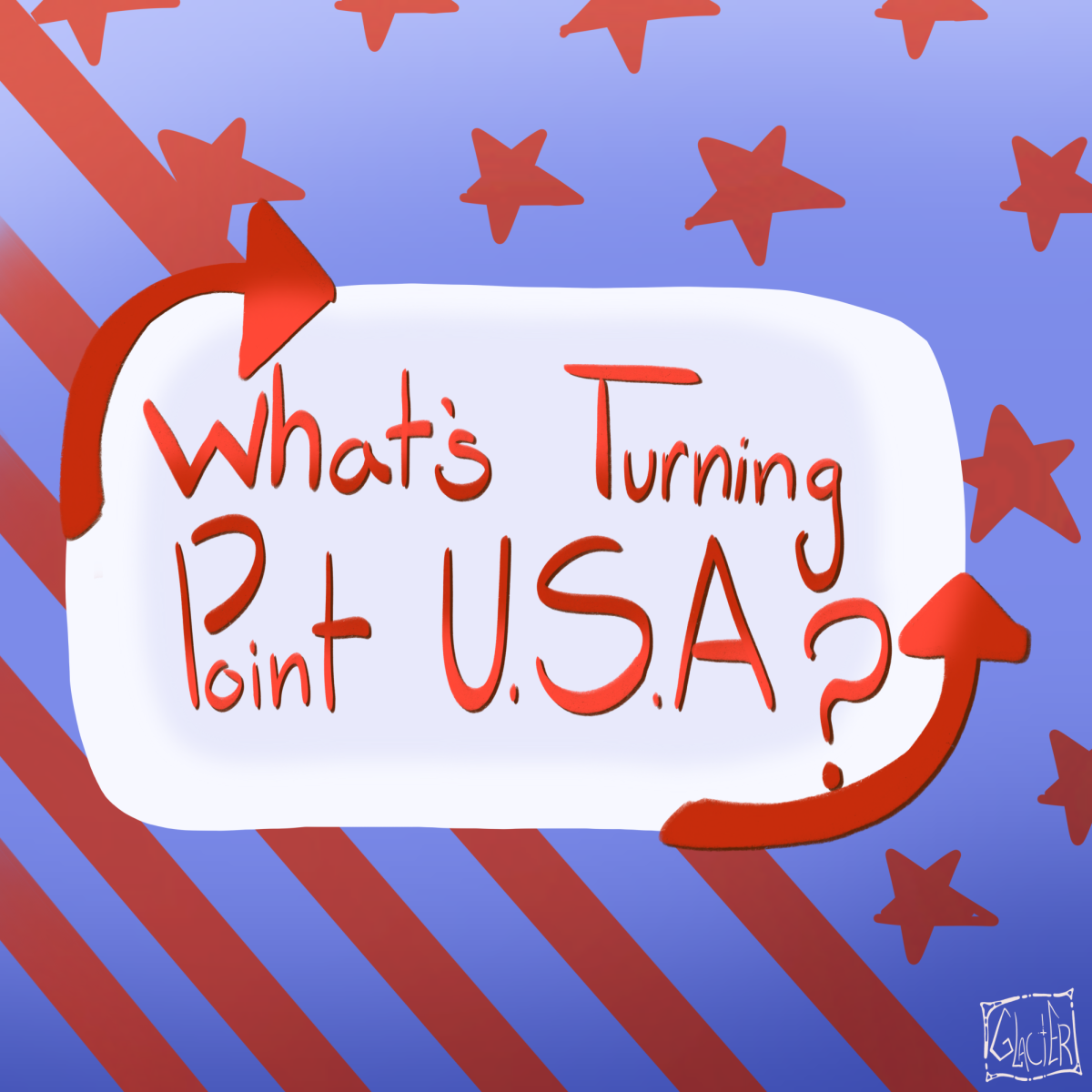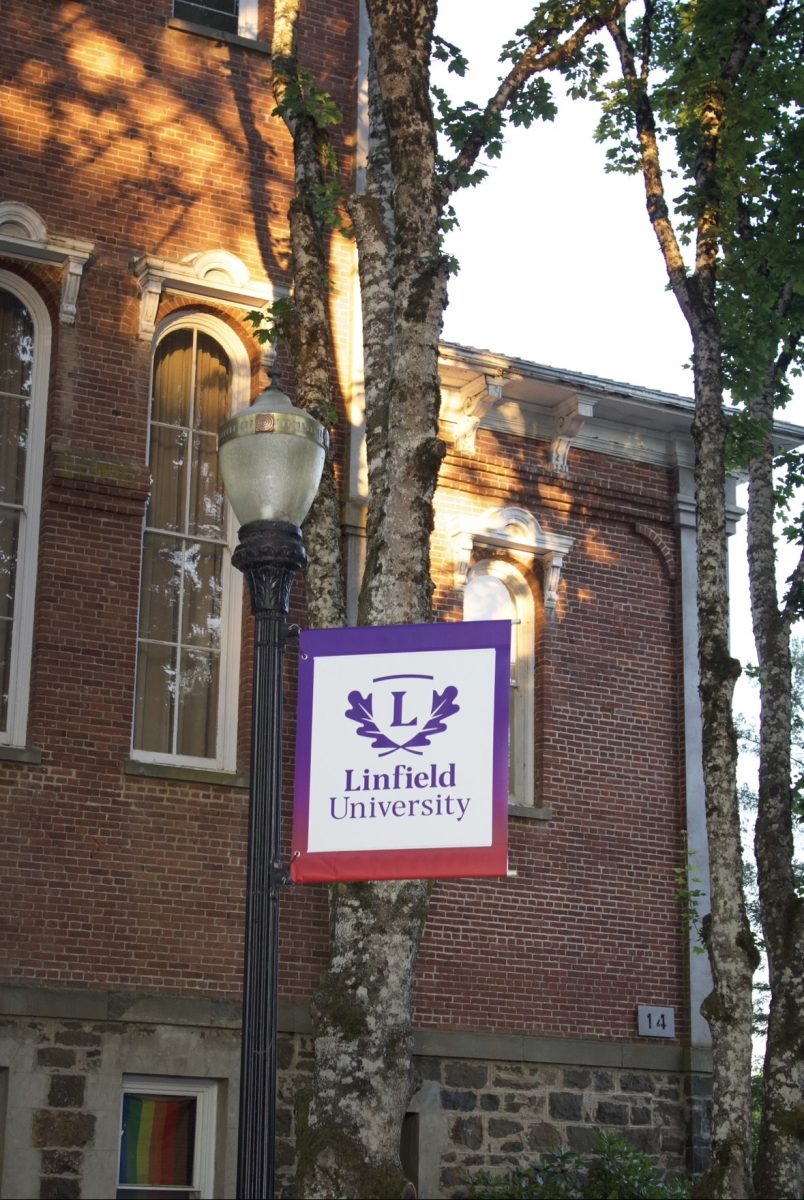What does it mean to be a loyal citizen when your country is at war? This issue and more were addressed at the collaborative Program for Liberal Arts and Civic Engagement panel on ‘War and Citizenship.’
Assistant Professor of Political Science Pat Cottrell moderated the event where four Linfield professors spoke from their individual experiences on their ideas about being a citizen in times of war.
The panel included Professor Chair of English Barbara Seidman, competitive scholarship adviser Tom Mertes, professor of anthropology Tom Love and professor of economics Eric Schuck. Each professor took ten minutes to explain what the theme of war and citizenship meant to them, and often drew on personal experiences.
“The notion of citizenship and civic engagement is absolutely fundamental,” Cottrell said after the panel. “And the point of these PLACE lectures is to show that every person on this campus has their own set of skills and talents to offer to society.”
Mertes spoke first and began his lecture by playing “Machine Gun” by Jimi Hendrix for the audience. The song set the mood for a look at how issues of free speech have shaped U.S. history. This helped set the background for the rest of the lecture.
Love went next, approaching the issue from an anthropological perspective.
“What does it mean to be patriotic? What does war mean? When is it right to kill?” Love asked in an interview after the lecture. “These issues are things that anthropologists have a lot to say about, because it’s all about meaning.”
He also wove in his personal experiences with the Vietnam War, which occurred while he was an undergraduate at the University of California, Berkeley. Although he was not chosen in the lottery for the draft, he still protested against its use.
“Even as I was protesting the war, I never felt that I was acting in a way that was inappropriate for being a citizen” Love said.
The issue of patriotism versus citizenship came up in Seidman’s lecture as well. Seidman’s father was in the military and she has two sons in their 20s. Seidman used her connection to the military to explore how war can change the meaning of citizenship.
“I’m not a pacifist,” Seidman said, “but I don’t support blood rage… It’s easy to sit back on the home front if you haven’t known anyone who has served in the last 12 years we’ve been at war.”
Schuck went last and spoke about his experience serving in the United States Navy. He explained the benefits and costs of the military as it is, which he sees as a meritocratic system.
“It’s a difficult selection process though,” Schuck said. “If you succeed you live, if you fail you die.”
After the event the panel structure allowed for the professors to address audience questions in a discussion-based way.
PLACE will continue with the theme “Legacies of War” until next year when “How Do We Know?” will replace it. PLACE offers students, professors and faculty with a forum for innovative ways of looking at education.
Tying in with the theme of the lecture, Cottrell explained the importance of PLACE here at Linfield.
“A lot of students can get caught up in the college world,” junior Morgan Seymour said, who attended the event. “They don’t stay current on politics or voting, things that make people good citizens. This PLACE event helped remind me and other students that we are the next leaders in the world, and we need to enhance our understanding of what’s going on in the world.”
Olivia Marovich / News editor
Olivia Marovich can be reached at [email protected].

